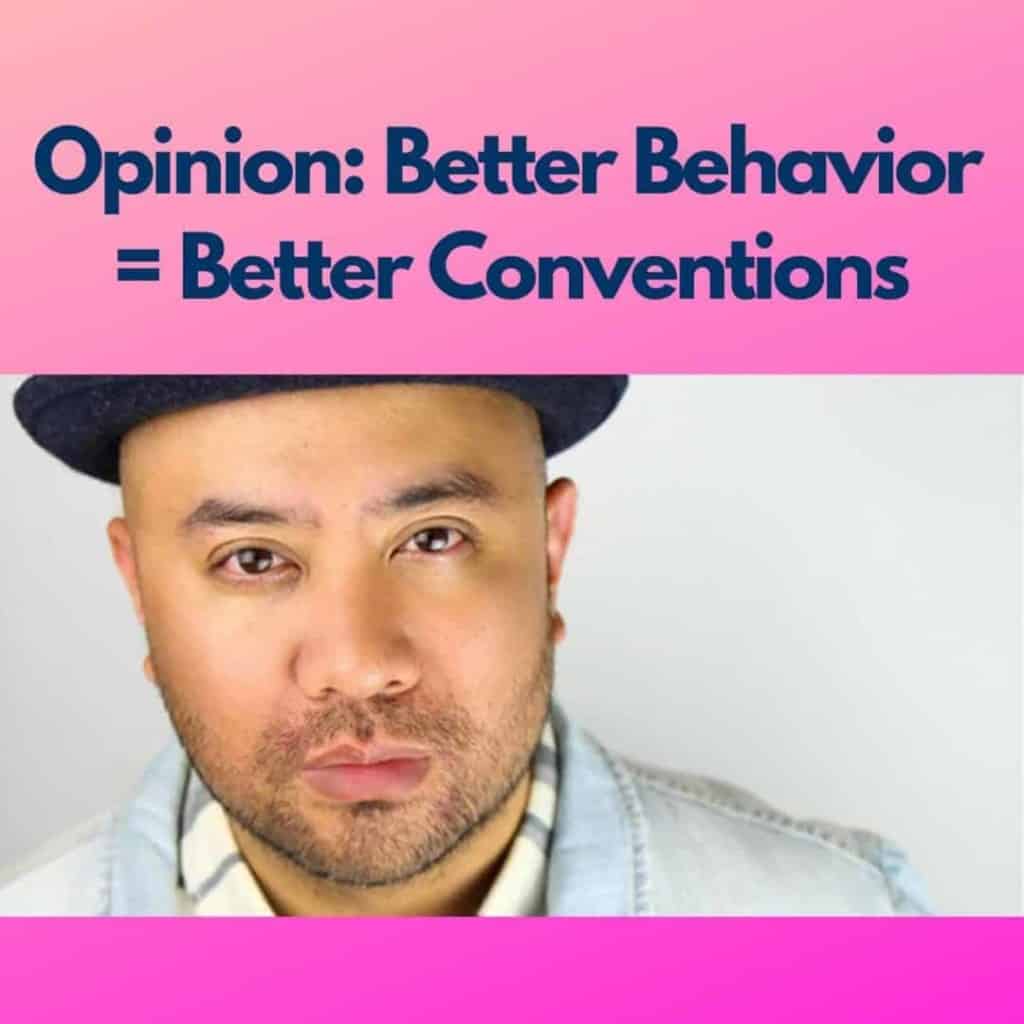Opinion: Better Behavior = Better Conventions

by Erik Saradpon
As the popularity of dance has increased, so too has dance convention attendance. As an educator, I’m fortunate to experience conventions from both sides: I take my students to conventions frequently, and I also teach at conventions. But I’ve noticed some convention behavior that needs to be addressed. I want convention teachers, studio teachers, and parents to put students’ needs first, and I have some ideas about how to make that happen. Here are the points I think we should consider:
Let’s take convention classes seriously
Class is the most sacred part of a child’s growth as a dancer, so we should work to limit, or completely eliminate, distractions. This includes talking to kids during class, between groups, etc. We should save these discussions until after class. Some kids become so focused on winning a scholarship and impressing their teachers and parents during the convention that they are no longer dancing for technical and artistic growth or personal satisfaction. When you distract kids during classes, you also undermine the teachers facilitating the classes. The noise level of observers should never interfere with teachers’ instructions or students’ concentration.
The focus during classes has shifted away from getting an education and toward getting attention.
Remind students to get their money’s worth
It’s in students’ best interest to take as many convention classes as they can, considering they have paid for a weekend’s worth. It’s worth reminding students that professionals do whatever it takes to improve, including getting as much education as possible.
Establish phone-free zones
There has been a wave of parents recording their kids during convention classes and sharing the footage all over social media. The focus during classes has shifted away from getting an education and toward getting attention. These parents are setting up their kids to measure their self-worth based on the approval of others.
We should be telling these parents that creating a sustainable dance career depends on getting a sound education. The most important lessons are between the steps. Watching groups is just as important as performing in groups. Applying corrections is more effective than just hearing corrections.
Make yourself clear
The effort to create environments where education comes first starts in our classrooms; it should carry over to conventions. When I teach at conventions, I make it very clear at the start of class what my expectations are. I share my perspective, and remind everyone there that being present, mentally and physically, is a responsibility and privilege. Getting the students to buy into the bigger picture is always one of my goals, and stating my intention sets everyone up for success.
I also encourage studio teachers to have candid discussions with their students prior to, and after, the convention. Help them set realistic goals, then reevaluate the experience together back at the studio. Guide them by offering examples of productive convention behaviors: trying their best for every teacher, every style, every level; applying corrections even when they are given to another dancer; giving the teacher good energy by standing respectfully, listening intently, and making eye contact; responding verbally to convention teachers when they ask a question; and dressing appropriately for every discipline. Dancers who feel empowered to succeed will approach every new experience with confidence.
Erik Saradpon is the director of hip-hop at Temecula Dance Company and is a choreographer represented by MSA Agency.





